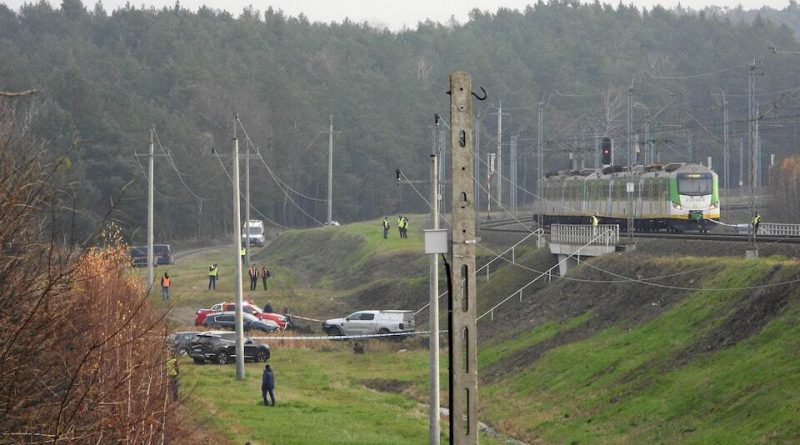Russia Orders Closure of Polish Consulate in Siberia Amid Tensions Over Rail Blast
Moscow – Russia announced that Poland must close its consulate in the Siberian city of Irkutsk, marking a sharp escalation in diplomatic tensions between the two countries.
The move comes after Poland decided to shut the last remaining Russian consulate on its territory, following a recent railway explosion that Warsaw linked to foreign involvement.
The diplomatic exchange unfolded as both governments hardened their positions. Warsaw maintains the rail incident was an act of sabotage tied to outside actors, while Moscow rejected all allegations and accused Poland of hostility driven by political motives.
The dispute began after an explosion struck a key railway route connecting Warsaw with the Ukrainian border.
The blast disrupted transportation and raised concerns about infrastructure security at a time of heightened regional tensions.
Poland’s leadership said the attack represented an unprecedented act aimed at destabilizing critical systems.
Authorities stated that evidence pointed toward individuals allegedly working under the direction of foreign services, intensifying scrutiny over cross-border activities.
Moscow dismissed the accusation, saying it was yet another example of what it calls a climate of suspicion toward Russia.
Officials argued that they are frequently blamed for incidents without credible evidence, framing the reaction as politically motivated.
In response to Poland’s closure of the Russian consulate in Gdansk, Russia summoned Poland’s ambassador in Moscow. A diplomatic note was issued informing Warsaw that the Irkutsk consulate would be shut down from the end of December.
Russia described Poland’s decision to reduce Russian diplomatic presence as unjustified and openly hostile. The Foreign Ministry said the step lacked a factual basis and reflected a broader pattern of tensions between the two states.
Officials in Moscow warned that any actions perceived as threatening Russian interests would result in what they called an “adequate and painful response.” This rhetoric reflects the increasingly firm tone adopted in relations between Russia and several European nations.
Poland, however, said it does not view Moscow’s decision as justified. Government representatives stressed that Poland had not engaged in activities that would threaten Russia and reiterated their stance on maintaining internal security.
A spokesperson for Poland’s Foreign Ministry said staff from the Irkutsk consulate would comply with the order. The three personnel assigned to the mission are expected to leave Russia at the end of next month.
The closure is expected to limit Poland’s access to Siberian regions where consular services, cultural outreach, and community engagement had been carried out. Support networks for citizens in distant regions will now have to rely on alternative diplomatic channels.
The diplomatic rift comes at a time when Russia’s relationship with the European Union remains strained. Long-standing disagreements over security, borders, and political influence continue to shape interactions within the region.
For Poland, the rail blast heightened concerns about hybrid operations and potential foreign interference in national infrastructure. Officials have called for increased vigilance and coordination with allies to prevent further incidents.
Russia maintains that accusations against it reflect a broader geopolitical narrative driven by distrust rather than evidence. The government says that unilateral decisions by European countries undermine opportunities for dialogue and stability.
The coming weeks will likely see further diplomatic messaging from both sides as they navigate the fallout from the consulate closures. Observers expect additional measures or statements depending on how political and security assessments evolve.
With communication channels narrowing and tensions rising, the situation underscores the fragility of regional relations. The exchange highlights how security incidents can rapidly intensify already delicate diplomatic landscapes.


